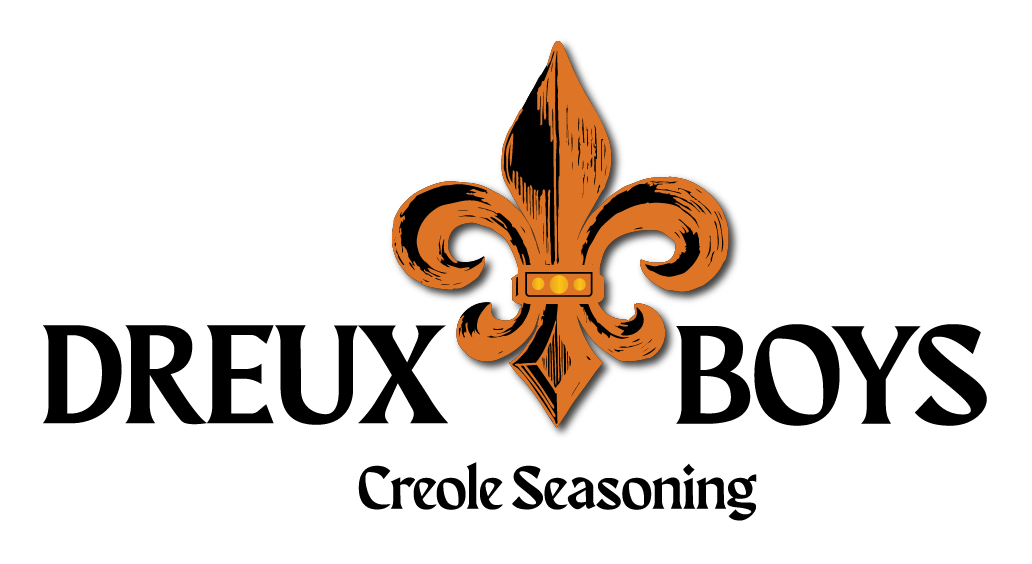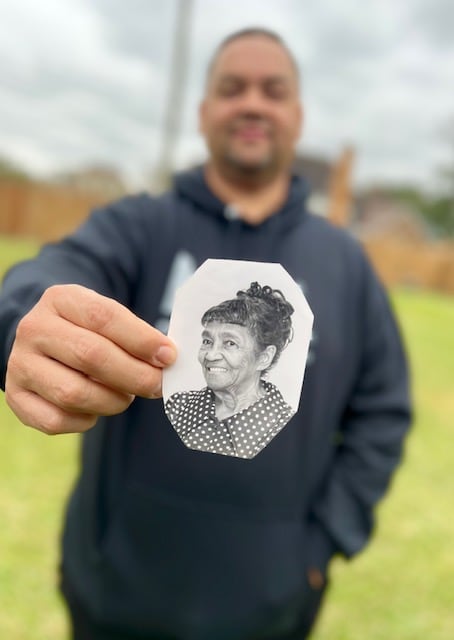
I started making my Creole Seasoning in 1998, for friends, family and mainly myself. In 2022 I decided I wanted to share my beautiful seasoning and food culture with whomever is ready to season their food with a touch of Creole technique and flavor!
Our Louisiana Roots
My family is true to our Louisiana roots. My dad's family comes from New Iberia, Louisiana which we call “the country”. My Grandma’s name was Avia Boutte (pronounced Av-ya Bou-tae) and she was born and lived and worked on their family farm in New Iberia. Later, they moved to Algiers, Louisiana which is across the Mississippi River from New Orleans. My dad was born in 1937 and moved from Algiers as a 6-year-old to Oakland in Northern California.
Our brand is dedicated to my grandmother Miss Lolita Dreux born in New Orleans in 1920. I could tell countless stories of her, but I’m sure we all can share similar grandparent stories. As a child, I have cherished memories of sitting and conversing with her. Whenever I reflect on those moments, I am transported to a time when she would share stories of her upbringing in New Orleans. She would recount her visits to the local meat markets, where she would charmingly request "lagniappe" (pronounced "lan-yap"). I remember her frequent trips to the French Market, diligently "making groceries" every three days to replenish their ice box. When I consider the 1920s, a period marked by the enduring Great Depression from 1929 to 1939, I realize that she experienced it as a child. Despite the hardships faced by Americans during that time, their resilience shone through. They made the most of what they had, finding joy in the simple pleasures and being happy they had each other.
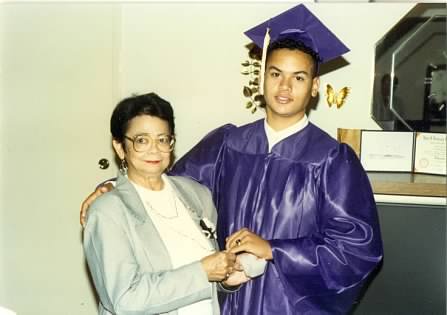
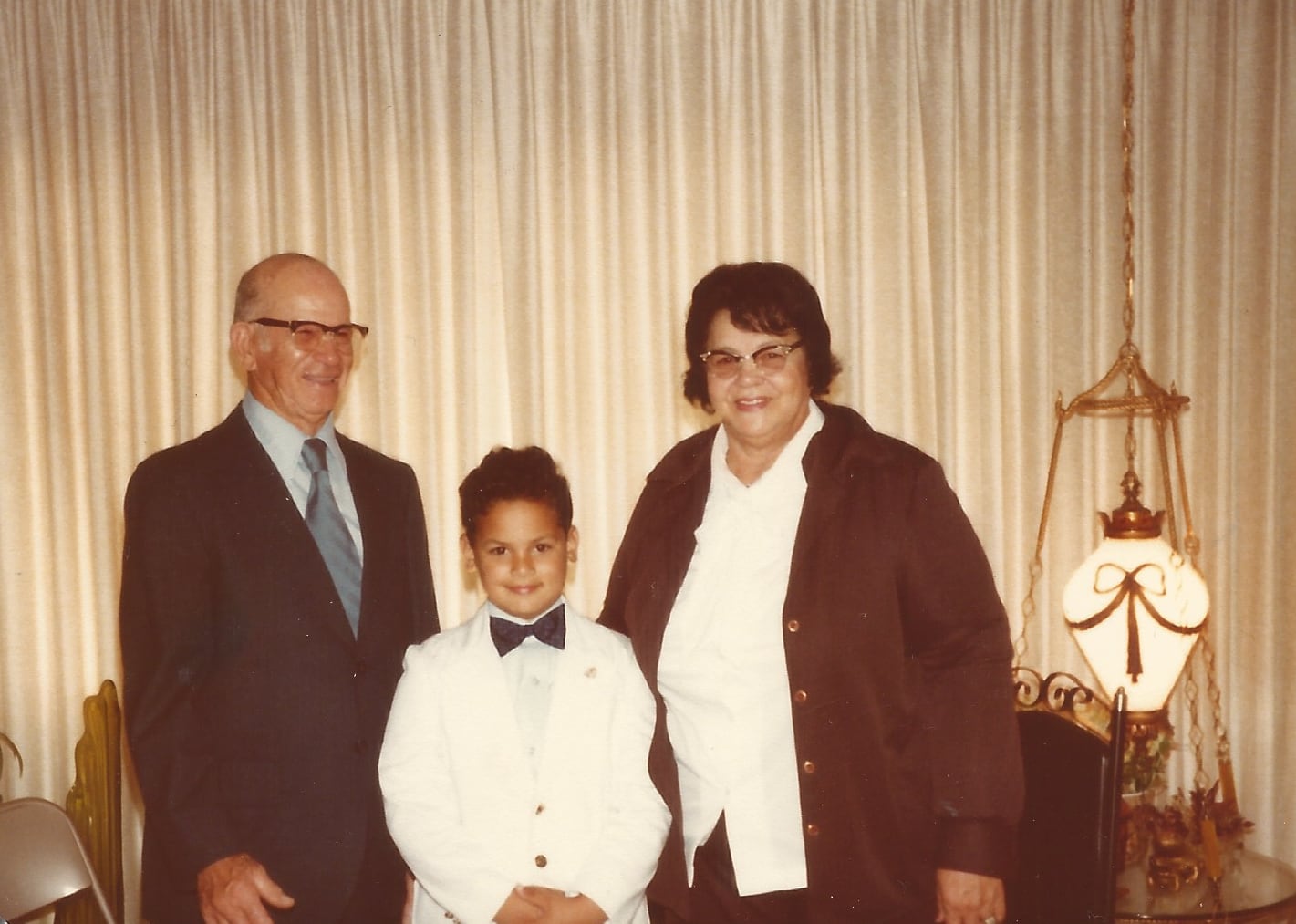
My mom was born in New Orleans in 1940. She grew up in the French Quarters going to the private all girls Catholic school called St Mary’s Academy, and more notably working at her grandfather’s grocery store in the Treme` district called “Rodriguez Market”. The building is no longer there, it was torn down a long time ago, it was one of many businesses my grandparents and great grandparents owned in New Orleans. My mom left New Orleans in 1960 on a vacation with my uncle to Southern California to visit family and never went back. She told her mom and sister how beautiful it was, the weather and 80% less humidity! Plenty of work in the West, so they all moved out to sunny Los Angeles California.
My parents met in Oakland, and so it began. I grew up with a very typical southern upbringing with the food, family and the love from Aunts, Uncles, and friends from New Orleans. I use the word “friends”, but these folks were and are family and we treat them as such today. As a kid I grew up going crawfishing off the rice fields in Sacramento. At the end of the day, we would have a crawfish boil. We caught enough to feed all the families, about 20 people, with all the fixings that go into a traditional Louisiana crawfish boil with sausage, potatoes, corn and buttered French bread, beer for adults and root beer for the kids. There was no place on earth I would rather be, at that table eating those crawfish with our families.

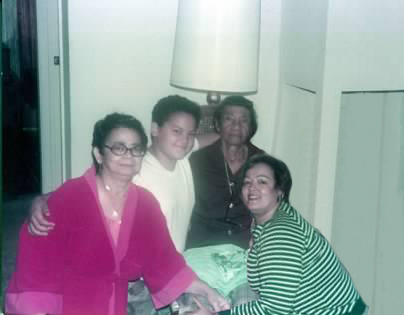
Now I have the pleasure to share these foods and flavors with my kids, as they eat these foods that I grew up on!
Understand my roots are Louisiana, my Mom, her Mom (grandmother), her Mom (great grandmother) were born in New Orleans and I would never trade what I was taught growing up for anything.
Todd's Bio
Born in 1972 in Hayward, Northern California, Kaiser Hospital. To know me, you need to know my family so here we are.
All of my family was born in Louisiana except me and my brother.
My mom had two siblings, and my grandmother. They all moved from Louisiana to Southern California (Los Angeles) in 1960.
My family’s New Orleans roots.
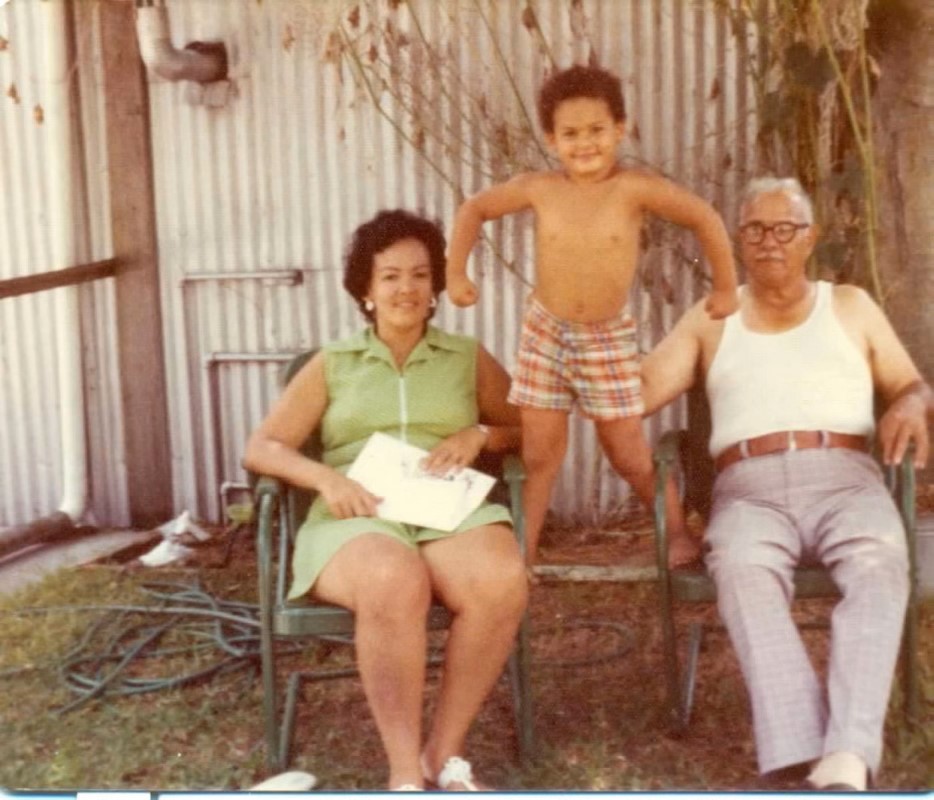
My mom’s side, her mom, Miss Dreux (my grandmother, who I named my company after) was born in New Orleans in 1920 and so was her mom, Leona Garibaldi, and her dad Camile Dreux were both born in New Orleans. My great grandmother’s maiden name was Leona Garibaldi, I say this because to understand what Louisiana Creoles are, you have to understand the origin of where everyone came from to make up what a is Louisiana Creole.
My moms father was born in New Orleans name was Earl Rodriguez. Earl‘s father was born in Cuba. His name was Anthony “Tony” Rodriguez. Tony had an older brother and sister. All three of them left Cuba by their self in a small boat. We don’t know for sure but our guess is the boat did not have a motor like most boats that left Cuba back then. Cuba to Key West Florida is 90 miles. keep in mind that most Cuban’s went for Key West, Florida, a journey of 90 miles. Landing in New Orleans means they traveled even farther. I’m sure they knew a general direction and hoped for the best, hell of a road trip huh? They made it to the shores of New Orleans. From what we know they never saw their parents again. My great grandfather at that time was around nine years old when they left Cuba.
When they arrived, being that they were Catholic, they went to the church and they were separated to different orphanages in New Orleans, by the color of their skin. To understand the Creole culture, you have to also understand color, because the world back then and even today, was not color blind, that’s a whole other story.
I’m proud to say that my great grandfather Tony started working as a young man and sold fruit and vegetables in a pushcart in the streets of New Orleans. Later he opened many businesses, one was in the Treme district called Rodriguez Supermarket. My mom worked there as a cashier at the age of 13 as did my grandfather Earl. My grandfather and great grandfather went on to open many different businesses and owned property in and around New Orleans. One of the businesses was a funeral home on Oretha Castle Haley Blvd. After my grandfather passed around the year 2000, my family sold their portion of ownership to the partners. The Mortuary is still there to this day.
My grandfather also spread his wings out to the West Coast, Southern California. He owned a fish markets in Los Angeles and liquor store in Watts, both were sold in the mid 90’s.
My dad’s side of the family
My dad‘s father died when he was a young boy, so we don’t have too much information about him. We do think that he was born in Louisiana but because my dad was young and so were his siblings, information is hard to come by now.
My dad was born and grew up in Algiers, Louisiana, which is right across the Mississippi from New Orleans. They moved when my dad was a kid, to Oakland in Northern California.
My dad’s mom, Avia Boutte was born in the house she grew up in, on her family's land, in New Iberia, Louisiana. That’s what we call “the country”. We believe her father was born in New Iberia, Louisiana. His name was St. Cyr Jr. (pronounced saint seer) Boutte (pronounced boo-tay).
My parents met in Northern California, so my mom moved north to Oakland to start their family.
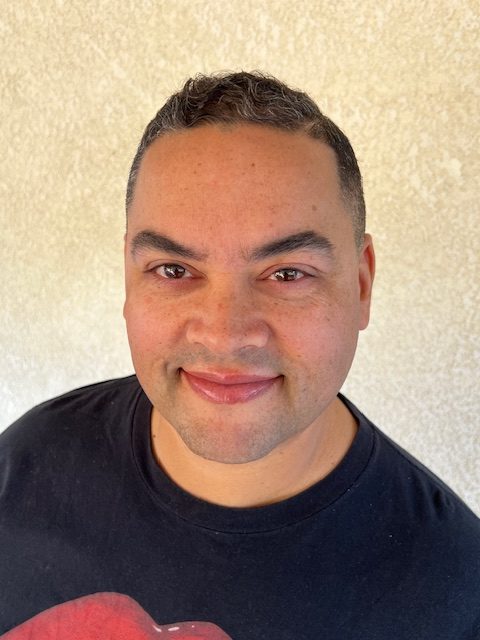
Todd – That’s me, Chief Blender in these parts!
I grew up in a small suburban town about 30 minutes south of Oakland called Fremont, located in northern California known as the Bay Area.
My upbringing was that of a southern nature. When we greet people it’s always with a hug and a kiss on the cheek for the women and a firm handshake for the men. You will never get a warmer reception or feel more at home then with Southern people. We just have a way about us that cannot be duplicated, because that’s how we were raised.
For me, when I went into my house in Fremont, it was like walking into a Louisiana home. The food to the culture, to the family. It’s where I learned how to cook and season. During the holidays my dad or his mom would make hogs head cheese, and other Creoles would come over and eat it like it was the greatest thing ever invented, yes it went on a saltine cracker. I used to eat it, but only a couple of pieces, and then I had enough.
Understand one thing about where I grew up because it was not in New Orleans. That meant if we wanted to eat any type of food from Louisiana like Boudin, hogs head cheese, crab boil, crawfish boil, shrimp or oyster (gulf oysters) po boys, jambalaya, red beans and rice, hot sausage sandwiches, gumbo (file or okra), we made everything. We could not go to a restaurant or a store down the street or in the next town, we made it all.
Planning where and when we were going to get certain ingredients was real important. We bought our gulf oysters from the grocery store when we or a family member visited New Orleans. Sometimes we found a connection in Los Angeles. Once again, we can’t just go to the store because our ingredients are about 1700 miles away. That’s how, why and where I learned how to cook all of these beautiful dishes from Louisiana.
To go deeper on that subject, when I was a kid my dad and our other friends from Louisiana would go crawfishing. We would drive for an hour and a half in the summer to the Sacramento valley and find the rice fields. Next to a rice field is where they hold the water and that's where the crawfish live. The farmers don't mind if you fish them because the crawfish destroyed the canals overtime.
The farmers would have to rebuild the walls of the canals because the crawfish would burrow into the wall which made the canals wider and made holes in the wall to the rice field. We would start crawfishing about 6:00 in the morning. We would run about 20 or 30 nets with a 7 foot wooden stick that had a V at the end to channel the rope. We would fish until 3:00 PM, we wouldn't leave until we had enough to feed about 20 people. Once we got home, before we started the cleaning process, my dad would turn on the zydeco music and that gave us our second wind. Sausage, potatoes, corn, French bread and butter. Seasoning a crawfish boil is a fine art to make sure everything tastes good, and the seasoning penetrates the potato and the sausage, sometimes cooking takes more than seasoning, it takes patience. I miss those times.
When I was a kid, we went to New Orleans every few years and I always hated to leave and couldn’t wait until the next time I went back, even to this day. A lot of my older family members who moved from there, some never went back once they left. The reason, they grew up with racism, colored drinking fountains, dividers in public transit buses. The divider said colored and if your skin was not white you sat behind that sign, at the back of the bus. That was a different place, and they had a different experience in the 1940’s & 1950’s. I’m sure it was not a fun place for them as it is now when we go and enjoy the food, music and the culture of New Orleans. They went through a lot of pain back then for all of us to visit New Orleans today and enjoy all that good food and music.
I have spent my life explaining to people what Creole is. I’m sure you’re reading this and wondering, what is Creole, where does the word come from? You will have to wait for the podcast on that one.
Todd, Cast Iron Creole
View Our Products
Take a look at our latest products!
